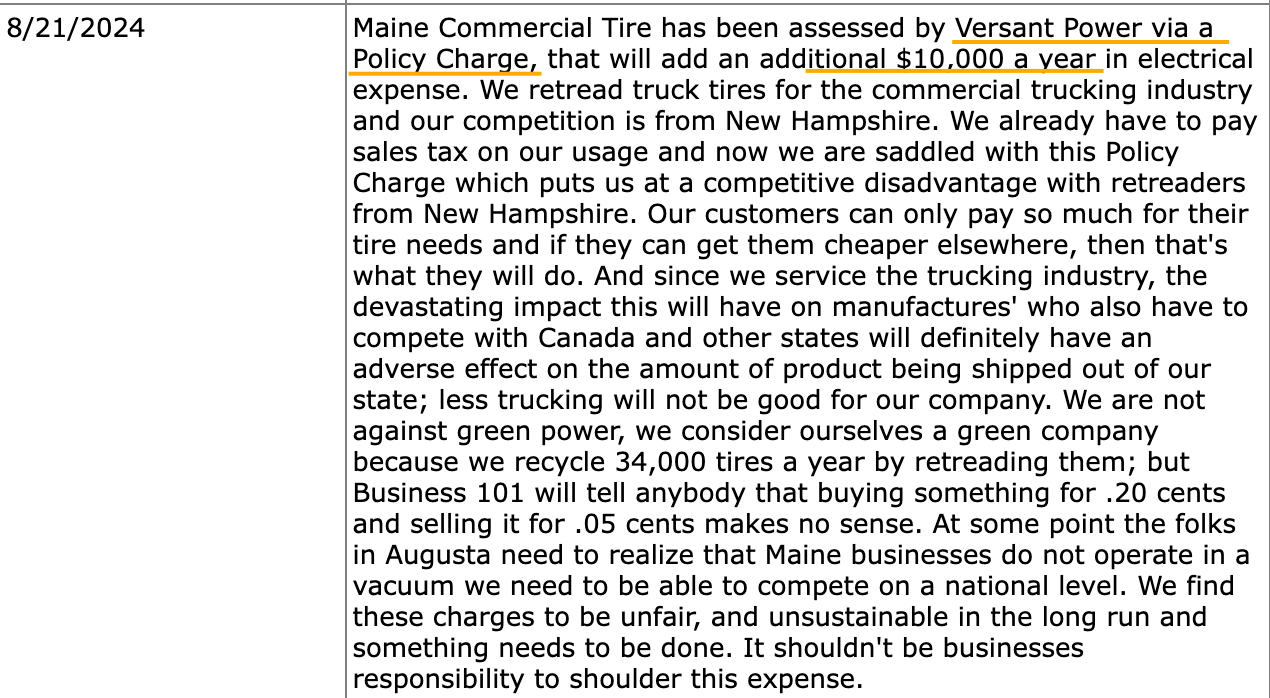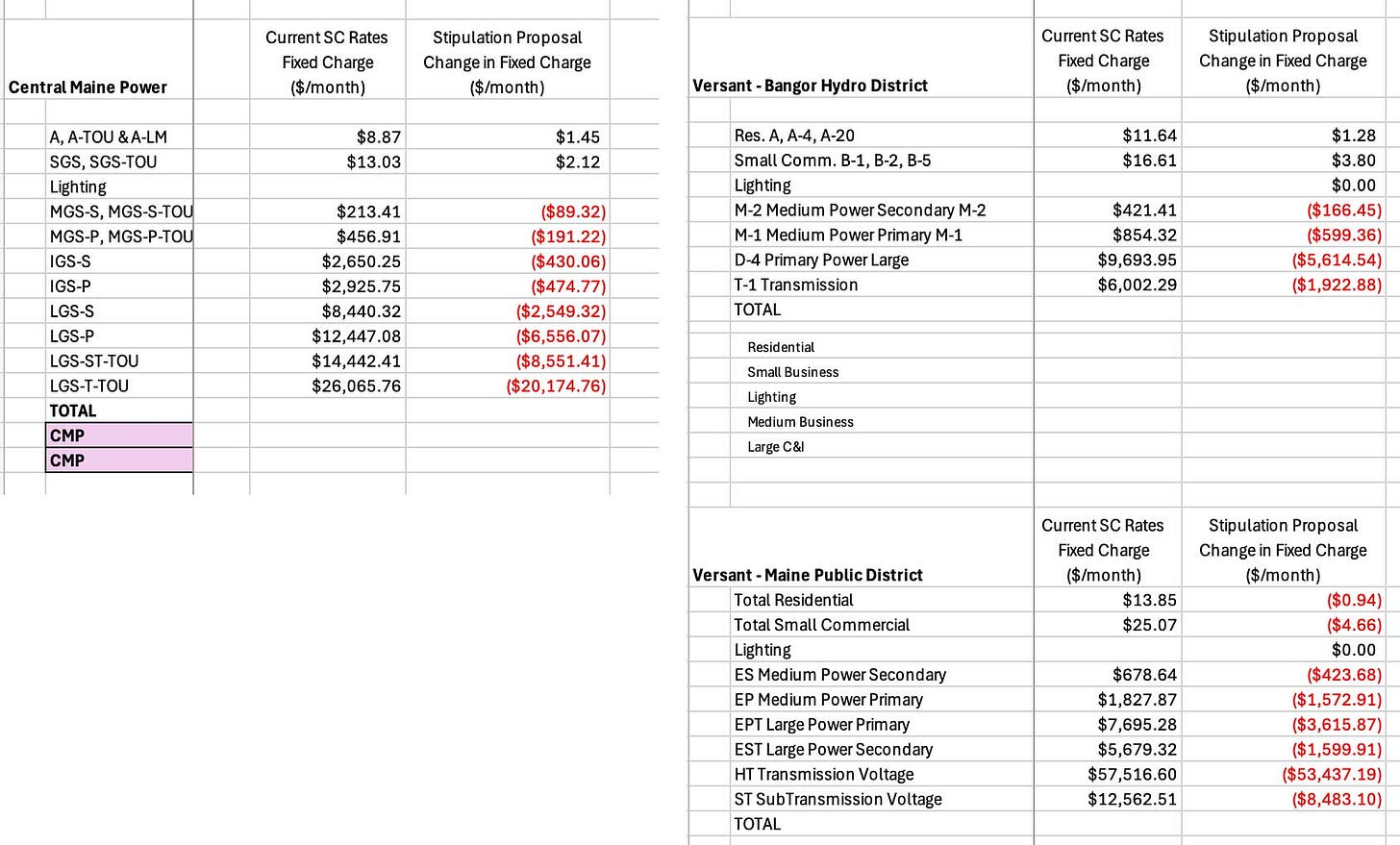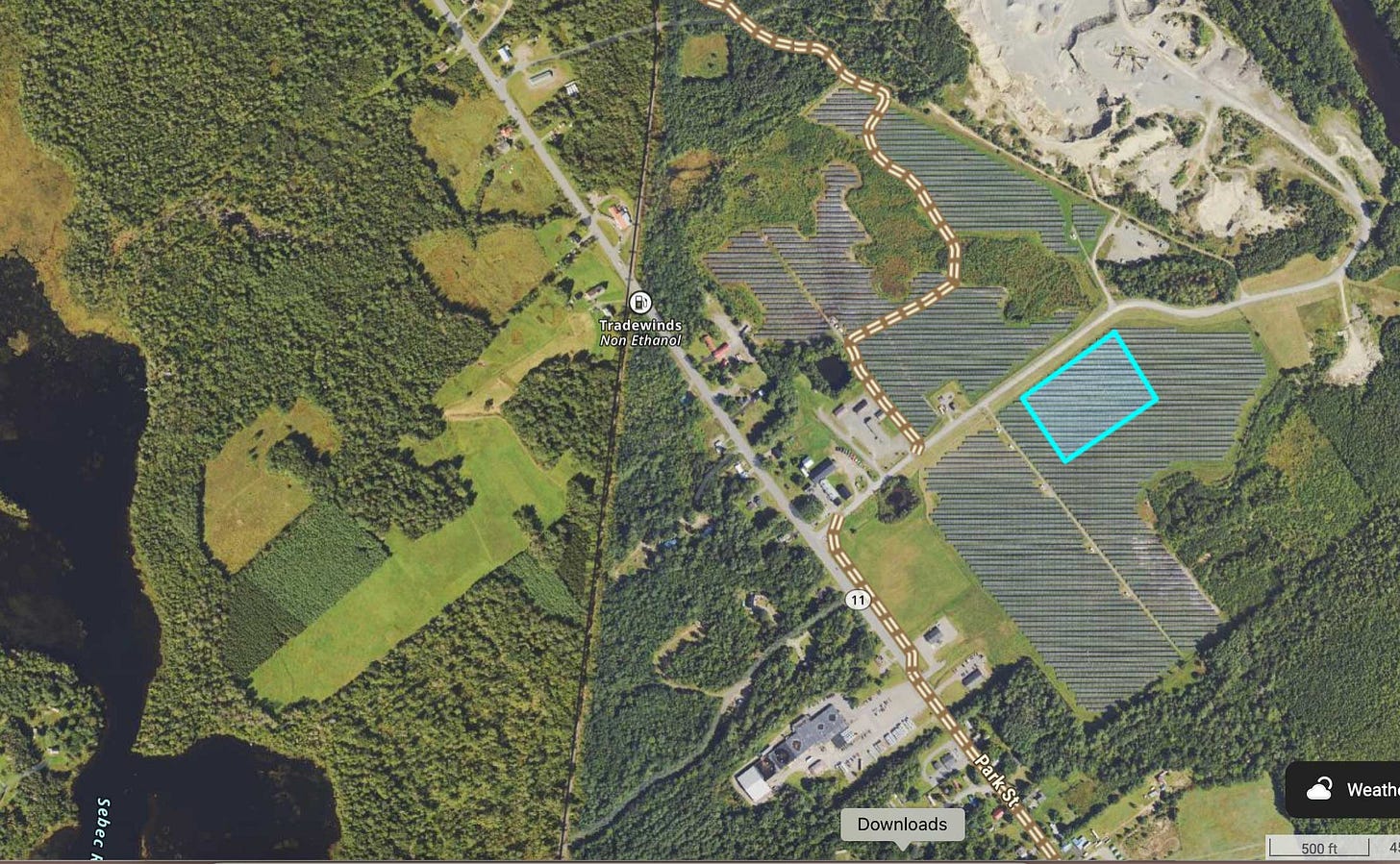Why mention NEB on a substack about protecting farmland?
There are Net Energy Billing hearings February 27th in Augusta
NEB = Net Energy Billing
NEB is a public policy incentive, which has had the inadvertent impact of increasing electricity costs. It also is one of the reasons you see acres of solar panels on fields in Maine.
On Thursday, February 27 2025: The Energy, Utilities, and Technology (EUT) Committee will hear testimony on several bills which aim to alter the current NEB regulations.
At this moment, the list of bills is:
Thursday: 2/27/2025 9:00 AM PUBLIC HEARING
L.D. 32 An Act to Repeal the Laws Regarding Net Energy Billing
L.D. 257 An Act to Eliminate the Practice of Net Energy Billing
L.D. 450 An Act to Lower Electricity Costs by Repealing the Laws Governing Net Energy Billing
L.D. 515 An Act to Reverse Recent Changes Made to the Law Governing Net Energy Billing and Distributed Generation
L.D. 359 An Act to Prohibit Net Energy Billing by Certain Customers
Through a strange lineage, incentivizing solar panels has led to serious increases in stranded costs. Stranded Costs (wikipedia) means: when a public utility invests in infrastructure, the ratepayers are expected to pay for it over time. If markets change, such as a preference arising for different types of electricity generation, the utilities are still owed the money on their infrastructure.
Now, the NEB portion of stranded costs is running $180-$220 million in Maine.
Per year.
And the contracts are for 20 years.
For unknown reasons (perhaps political) it was determined that the average ratepayer should not be responsible for these charges, at least initially. The result? Certain brackets of electric service, specifically LGS in CMP territory, and HT in Versant, are now seeing monthly stranded costs charges of $8440- $57,516 per month. That’s right, per month. This is tracked in MEPUC docket 2024-00137.
Here are some of the comments from that docket:
Note: these are relatively small businesses who are seeing their electricity prices effectively go up by exorbitant amounts (i.e. 80%, as mentioned in comment #2)
Item number 278 of the public docket includes a proposal to shift these costs substantially onto the other commercial customer service brackets through demand charges and volumetric charges, as well as onto general residential.
This is what it looks like:
SC = stranded costs.
In addition to the picture above, it proposes increasing Demand Charges on services MGS and larger in CMP territory.
Demand charges checks how much electricity you are using at the same time (i.e. you would pay more if you use all your machines at once.) If you want to see how the proposed numbers work, go visit docket 2024-00137, navigate to item 278, and download the spreadsheet attachment.
The participants discussed the proposal above in the most recent docket item #315 “Transcript 2/12/25” - which did not come to a clear conclusion.
Hoping to report back after Thursday’s hearing.
An aside: apparently some legislators are taking issue with the idea that NEB is a “public policy initiative” - but that is how it is described in the transcript from 2/12/25 as well as on billing from Versant.








